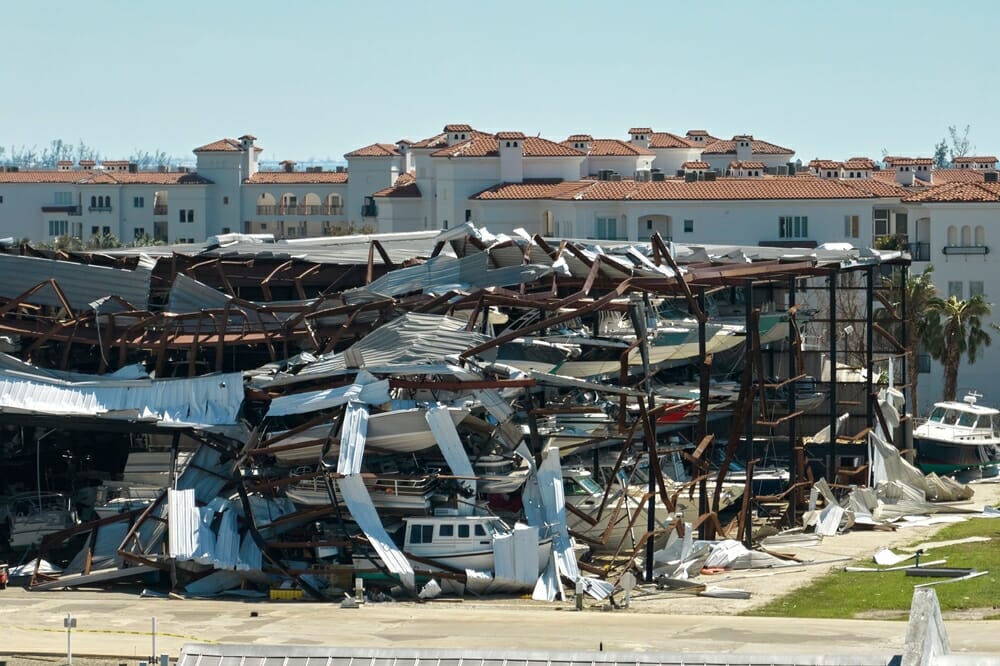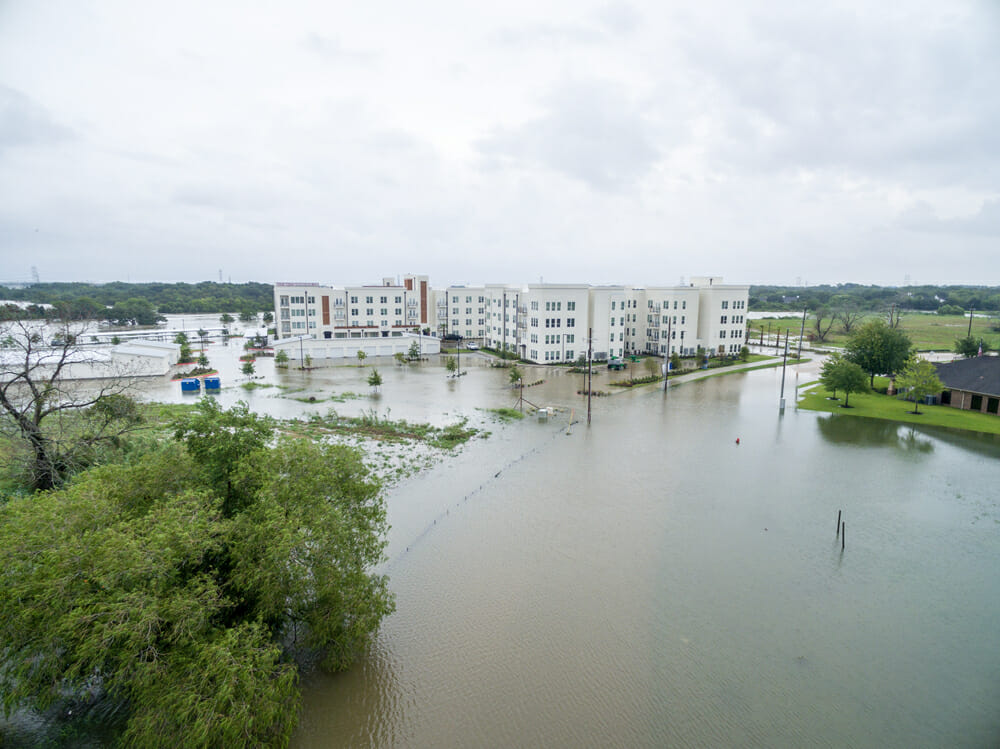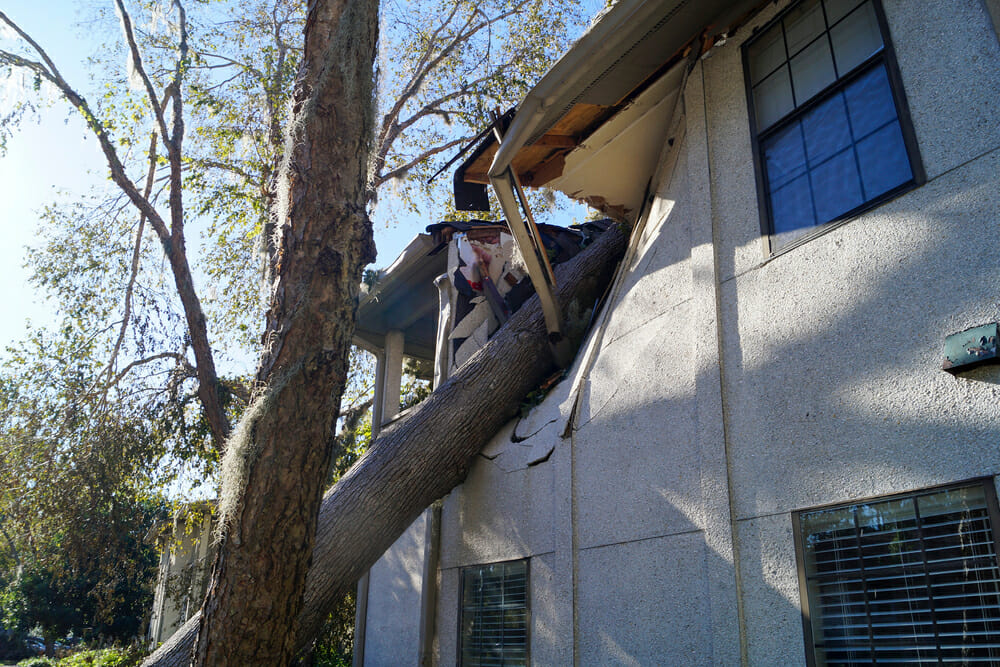We settle all kinds of property damage claims

Insurance Claim Experts
Big Claims Experience, Small Firm Attention
Get your property damage insurance claim settled with help from Insurance Claim Recovery Support Public Insurance Adjusters, the policyholder advocates that Commercial & Multifamily business owners trust.
- Commercial Property Claims
- Multi-Family Property Claims
- High-Value Homes & Real Estate Claims
What You Need to Know About Public Adjusters
A public insurance adjuster (PIA) is a private, independent, licensed, bonded, and professional claims adjuster who settles property damage insurance claims exclusively on behalf of the policyholder. Public adjusters are the only type of claims adjuster that can…
- Legally interpret policy
- Negotiate insurance settlements
- Represent the rights of an insured
Aside from attorneys and the broker of record.
Policyholders may hire a public adjuster to help settle an insurance claim on their behalf. Public adjusters only represent the interests of the policyholder…not your insurance company.
Public adjusting services include strategic risk management advice, thorough investigation, communicating, corresponding, meeting, and negotiating with your insurers’ representatives on your behalf.
A good Public Adjuster (PA) can be a valuable resource for policyholders who are dealing with a large property damage insurance claim.
What is a Public Adjuster? Policyholder help—for a fair settlement
Basically, a public insurance adjuster is a policyholder advocate who is a private, independent, licensed, bonded, and professional claims adjuster who settles property damage insurance claims exclusively on behalf of the insured.
Public adjusters only represent the interests of the policyholder…not your insurance company. Public adjusting services include strategic risk management advice, thorough investigation, communicating, corresponding, meeting, and negotiating with your insurers’ representatives.
Conversely, an independent adjuster or all lines adjuster represents the interests of insurance companies. Insurer-retained representatives prepare claim filings for compensation on behalf of an insurance company.
Your insurance company assigns an “independent” adjuster to property damage insurance claims to represent the interests of the insurer. A public insurance adjuster has no duty to your insurance company and only represents the interests of insured policyholders.
Public adjusters only handle or advise on claims involving first-party property losses. These include real property, both residential and commercial, personal and business property, modes of transportation like automobiles, trucks, and airplanes, and other property covered by first-party insurance policies.
What does a public adjuster do?
Moreover, public insurance adjusters are legally authorized to act on behalf of an insured policyholder. Practices, responsibilities, and duties of a public adjuster include:
- Review policy language – some coverages and exclusions are open to interpretation. Analysis of conditions and knowledge of the terms of your indemnity contract are key.
- Assist the policyholder in meeting their burden of proof of claimed property damages.
- Perform a Timely and Proper Investigation – Inspect and assess physical damages.
- Match up losses with the appropriate property coverages for a fair settlement demand.
- Review and respond to carrier correspondence addressing any omissions, misrepresentations, wrongful denials, violations of policy, and violations of insurance code statutes.
- Compile and Submit a Pro-Policyholder Claim Package to your insurer with supporting evidence that documents your damages, the estimated scope of work, estimated costs, occurrence data, 3rd party reports, photos, news stories, policy language, statutes, bulletins, proper forms and present a proof of loss.
- Incorporate reasonable arguments to trigger coverage under your insurance policy and in compliance with the insurance code statutes of your state.
- Proactively remove objections, roadblocks, and wrongful withholding of coverages.
- Expose the insurer’s liabilities and potential violations of the statutory insurance codes.
- Reasonably argue with a credible degree of certainty any questionable allegations of an insurer’s view for underpayment, delays, or wrongful denial of your property damage insurance claim.
- Negotiate a fair and prompt settlement.
- Preparation, complete, and/or file a complaint to the state department of insurance on your behalf.
- Preparation, completion, and/or file an insurance claim with a respective insurer for compensation or remuneration on behalf of an insured policyholder or first-party claimant.
- Refer legal counsel.
- Avoid unnecessary litigation and appraisal.
Who Works With ICRS Public Adjusters?
Multifamily, Apartment, and Commercial business policyholders as well as high-end homeowners trust Insurance Claim Recovery Support public adjusters to prepare, file, and adjust their fire, hail, hurricane, flood, wind, water, vandalism, business interruption, and other insurance claims. Our clients have vastly benefited from the outcome of the claim settlement they deserve as a result of our pro-policyholder representation.
When should a policyholder hire a public adjuster?
If you aren’t getting the property damage insurance claim settlement you deserve, don’t fully understand the policy language, coverage, benefits, exclusions, or terms. Or, if you don’t have time to deal with the insurance claims process. Or if your insurance company is not reasonably responding to your requests, or if you feel your insurer is not correctly evaluating your claim.
The truth is, if you seek the maximum settlement you deserve with minimum time delays and stress, you may want to consider hiring an ICRS public adjuster to negotiate your insurance claim at the beginning, when a dispute arises, or to supplement a claim as a non-litigious option to settle a property damage insurance claim. Engaging a good public adjuster at the beginning of a claim is the best time. Especially if the claim is a partial loss, large or complex.
The reason why is that insurers are required to consider any evidence which supports the policyholder’s interests equal to their own in the spirit of acting in good faith. Unrepresented policyholders who don’t have anyone representing their interests run risks of poor documentation, misunderstanding of policy terms and claims submissions, improper inspections, delays, underpayments, financial stress, errors, omissions, bad faith tactics, and improper claims-handling practices.
Reasonably preventing property from further damage as well as performing a “timely and thorough investigation” of claims is an absolute MUST for a policyholder. Getting a prompt and fair settlement versus delays, underpayments, controversy, adversity, and unnecessary litigation can be achieved by hiring a professional public adjuster at the beginning of a claim to get fairly indemnified.
Good, experienced public adjusters will assist policyholders to navigate the insurance claim process from mitigation efforts to the recovery of withheld depreciation.
A public adjuster is essentially a policyholder advocate who acts as a private, independent, licensed, bonded, and professional claims adjuster that settles property damage insurance claims exclusively on behalf of the insured. They work solely on behalf of policyholders.
Individuals and businesses hire these licensed professionals when they need help filing a claim or if they believe a claim amount offered by their insurance company was incorrect.
Public adjusters can file and negotiate claims for hail, flood, fire, smoke, wind, and hurricane damage, as well as damage due to other perils, and loss of business income caused by property damage. They are legally authorized to act on behalf of an insured policyholder. Practices, responsibilities, and duties of a public adjuster include:
- Review policy language – some coverages and exclusions are open to interpretation. Analysis of conditions and knowledge of the terms of your indemnity contract are key.
- Assist the policyholder in meeting their burden of proof of claimed property damages
- Perform a Timely and Proper Investigation – Inspect and assess physical damages.
- Match up losses with the appropriate property coverages for a fair settlement demand.
- Review and respond to carrier correspondence addressing any omissions, misrepresentations, wrongful denials, violations of policy, and violations of insurance code statutes.
- Compile and Submit a Pro-Policyholder Claim Package to your insurer with supporting evidence that documents your damages, the estimated scope of work, estimated costs, occurrence data, 3rd party reports, photos, news stories, policy language, statutes, bulletins, proper forms and present a proof of loss.
- Incorporate reasonable arguments to trigger coverage under your insurance policy and in compliance with the insurance code statutes of your state.
- Proactively remove objections, roadblocks, and wrongful withholding of coverages.
- Expose the insurer’s liabilities and potential violations of the statutory insurance codes.
- Reasonably argue with a credible degree of certainty any questionable allegations of an insurer’s view for underpayment, delays, or wrongful denial of your property damage insurance claim.
- Negotiate a fair and prompt settlement.
- Prepare, complete, and/or file a complaint to the State Department of Insurance on your behalf.
- Refer legal counsel, expert engineers, hygienists, or other professionals when necessary.
- Avoid unnecessary litigation and appraisal.
Multifamily, Apartment, and Commercial business policyholders who engage Insurance Claim Recovery Support LLC public adjusters have vastly benefited from the outcome of the claim settlement we deliver as a result of our pro-policyholder representation. We work on a contingency basis and policyholders actually save a lot of time, stress and often pay the same fee by hiring us at the beginning of a claim rather than waiting for problems.
How does a Public Insurance Adjuster get paid?
Initial Claim: Professional public adjusters typically charge a fee of up to 10 percent of the insurance settlement less the claim deductible for their services. Most states allow a public adjuster to work on contingency under the terms whereby if there is no recovery, there is no fee.
Supplement Claim: If a claim payment has already been made by an insurer and a policyholder disagrees with the amount of the settlement, the insured or a public adjuster can reopen a claim to supplement the scope and estimated damages as long as it is within the statute of limitations and/or complies with the policy language. The method of calculating the commission for public insurance adjuster fees on supplement claims is typically based on the lesser of these 2 options:
Either (1) not to exceed (10%) percent of gross settlement, less deductible, or (2) 25% of new money.
Our public adjusters take pride in assisting policyholders to navigate the large loss claims process, avoid unnecessary delays, underpayments, and unnecessary litigation, and negotiate the fair settlement they deserve.
When should you consider the services of a public adjuster?
- When your property damage insurance claim is relatively large or complex. A public adjuster works exclusively for policyholders. Your insurance company will have an adjuster assigned to your claim; however, they represent and are paid by the insurance company to adjust the claim on behalf of your insurance company— not yours.
- You don’t fully understand the insurance policy’s language, coverage, benefits, exclusions, or terms.
- When you don’t have time to deal with the insurance claims process.
- Your insurance company is not responding to you adequately, timely, or you feel they are not properly evaluating your claim.
When is it too late to hire a public adjuster?
If you’re dealing with an insurance claim delay, underpayment, or wrongful denial and are just now discovering the benefits of using a public adjuster, you can still get help. Even after an insurer has issued a coverage determination, if you do not agree with their decision, a good public adjuster can typically reopen and supplement a property damage insurance claim subject to policy terms, conditions, and statute of limitations.
We routinely reopen and supplement property damage insurance claims. However, if you’ve hired an attorney, invoked appraisal, passed the timeframe to file or reopen a claim, signed a release with your insurer, or are currently represented by another party, it’s probably too late to hire a public adjuster.
Thinking of hiring a public adjuster?
- Ask – How long have you been a public adjuster?
- Check the references and qualifications of any public adjuster. Ensure the public adjuster and their firm only work for policyholders and never insurers or their representatives.
- Make sure they specialize in your type of loss and your type of property. Homeowner policies and damages are vastly different that surplus commercial policies and damages.
- Avoid any public adjuster who pressures you and, as always, read your contract carefully to make sure you understand it all before you sign.
- Know the facts after a major disaster. Your state’s insurance department may set the percentage that public adjusters are permitted to charge. Be wary of public adjusters who go door-to-door after a catastrophe.
- Ask – what percentage of their files escalate to legal or appraisal? The goal is to get you settled without unnecessary litigation or appraisal.
- Ask – how heavy is their current workload? After a major disaster, any good professional public adjuster will have challenges managing a large number of complex claims, find out how busy the public adjusting firm is before hiring them.
- Gut check – are you comfortable with the person? Were your questions answered and realistic expectations about the insurance claim process clearly set? Did the questions and requests for information in your conversations give you the impression that the public adjuster is learning your claim or are they trying to sell you?




Years Experience
Claims Settled
Hours Worked
Average Claim Amount
Risk-Free Loss Recovery Offer
Get a complimentary consultation on your damage insurance claim. We are claim adjusters who work for policyholders, not the insurance company. If you choose to hire us, we work on contingency. No recovery, no fee. Our insurance claim process is proven and streamlined. We also value your privacy. We do not sell, trade, or rent your personal information to others.
Need immediate damage insurance claim help?
TESTIMONIALS
What Client Says About ICRS
It pays to know ICRS – “747% Higher Payments with a Public Adjuster for Claims related to a 2005 Hurricane”
Frequently Asked Questions
When should I hire a public adjuster?
What is a fee for a public adjuster?
A: The fee charged by a public adjuster is state specific, dependent on claim size and complexity but typically 10% of the settlement, less the deductible. The fee is usually on a contingency basis. If you do not receive settlement from your insurance company, our public adjusters do not collect a fee. Our service fee is due in full upon receipt of payment from the insurance company.
How do public adjusters differ from insurance company adjusters?
Do I need a public adjuster if I already have an insurance agent or broker?
How long does it take to settle a claim?
A: Small claims might take only a few days. The average wind, hail or fire loss can take between 60 and 120 days to process. The length of time needed is based on the complexity of the claim.
Insurance Claim Recovery Support understands the sense of urgency you feel and the desire you have to quickly resume your daily life. We will do everything in their power to ensure your claim is processed quickly and efficiently, while at the same time maximizing your claim benefits.






